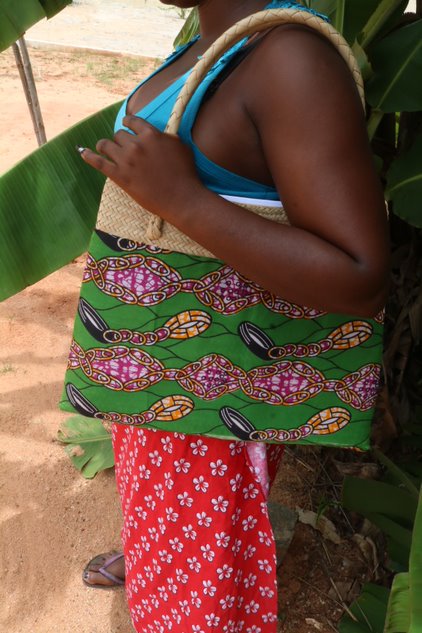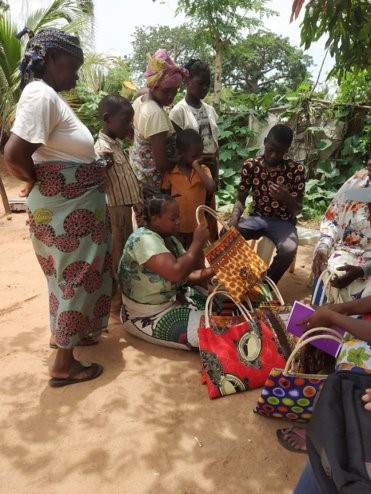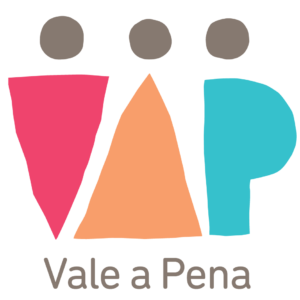This post originally appeared on the Adolescents 360 learning hub.
This piece is a part of A360’s replication series on the UK Aid-funded Vale-a-Pena project. With and for young people, Vale-a-Pena is proving the power in applying A360’s youth-powered approach to determine what it takes to enact effective, resonant and ultimately lasting adolescent and youth sexual and reproductive health (AYSRH) behavior change in Mozambique – and beyond.
By Fuva Muiambo, Communications Officer, PSI/Mozambique
When it comes to making sexual and reproductive health decisions, mothers, girls told us, are key.
It’s an insight gleaned through the UK Aid-funded Vale-a-Pena (VAP), a youth-powered sexual and reproductive health (SRH) project aimed at increasing how young Mozambicans aged 10-19 perceive and access modern contraception. The project works in partnership with Nweti, Associação Coalizão da Juventude, Think Place, Tuya Consulting and 12 young designers in the community to dig deep into consumers’ lives, leveraging the insights to unveil new ways of paving pathways to SRH services, where young people are and how young people need.
And as girls shared, mothers are core to influencing how, and when girls across rural and urban Mozambique make reproductive health decisions. But on the flip side of that coin lies the challenging reality: mothers do not feel prepared to discuss sexual reproductive health issues with their daughters. There seems to never be the right time or the right place for it. And there are other taboos that make starting the conversation difficult.
In response, VAP designed + Mãe.
Starting the Talk
Envisioned as a kit, +Mae provided mothers and female influencers with a dynamic tool to start ‘the talk’ with their daughters. The kit evolved over time to account for feedback received.
The ultimate prototype flubbed – but the learnings garnered along the way are powering us forward.
 During testing in our low fidelity phase, we learned that more specific information about method mix and choice needs to be included in the information provided (via brochure). The resulting kit, therefore, was a simple bag made of fabric that PSI already had in stock. We included condoms and referral cards to the health facility that mothers could share with their daughters. Plus, we stocked the bags with an informative pamphlet to give mothers the messages needed to prompt the hard conversations.
During testing in our low fidelity phase, we learned that more specific information about method mix and choice needs to be included in the information provided (via brochure). The resulting kit, therefore, was a simple bag made of fabric that PSI already had in stock. We included condoms and referral cards to the health facility that mothers could share with their daughters. Plus, we stocked the bags with an informative pamphlet to give mothers the messages needed to prompt the hard conversations.
But early testing showed that the kits and materials inside were not effective tools to generate dialogue because mothers wanted something that spoke directly to them. In fact, mothers misunderstood the kits as gifts.
Adaptation, therefore, were needed.
In medium fidelity test, bags were first made of traditional fabrics called capulanas and included informative pamphlets updated to address the VAP insights, including:
- No right place, no right time for mothers to initiate the SRH conversations
- Mothers are down to learn about sex, without talking about sex; formal SRH education falls short
- Family planning is for the old, never for the young
- There remains a growing distance between SRH services and consumers’ needs
- Family planning is her responsibility, her problem, but his decision
The bag was subsequently simplified and tested in different forms, such as a wallet or a pamphlet. But to make this work, we understood the tools needed to extend from the bag and into the community – giving mothers and daughters the assurance that this was something bigger than themselves. So we thought bigger and included invites in the bag requesting mothers’ presence at adolescent-focused mobile events that PSI/Mozambique was hosting.
How did we use it?

Working closely with community leaders, mothers were gathered through existing community structures such as savings groups and parents’ associations. We tested willingness to pay and sold some kits for 50-100MT (0.6-1.2 pounds), which was well below the cost of production. We also gave the kits out for free – concluding that the free versions were most resonant given mothers were not willing to pay for kits as items included could be sourced for free at health clinics. And in Maputo, we tested introducing the kit through facilitated conversations led by mothers who acted as peer coaches.
But alas, it flopped. What did we learn?
Mothers still wanted something that could stand on its own as the hesitancy mothers had initially about broaching the “hard conversations” still remained. They felt that initiating the conversations they were giving their daughters a carte blanche to begin sexual activity early. And girls affirmed that the mothers are not encouraging them to approach the health services.
What worked:
- We sourced some good feedback by leading kit demonstrations during group discussions, at stalls in the market and by going door-to-door to meet with mothers.
- The kit allowed us to “learn about sex” without having to “talk about sex”
What didn’t work:
- Mothers are not always willing to pay for the kits, as most items are available for free in the health facilities.
- The kits and material inside are not effective tools to generate dialogue. Mothers want something that speaks for them. Sometimes the mothers just pointed to the method they preferred and encouraged girls to select that one. One of the possibilities discussed in the synthesis meetings was that the brochures were still text-heavy, even after including additional images.
- Not all mothers can read, and may not use the kit if they feel embarrassed that they are illiterate. of being illiterate. The challenge then is to consider how we can best prepare all mothers to engage meaningfully with their daughters, regardless of their ability to read.
What will happen to +Me?
VAP loved the idea of +Mae, but with time we learned that it wasn’t really about the kit, but rather about providing safe spaces for parents to feel comfortable to initiate hard conversations, with or without +Mae.
We’re back to the drawing board.

Learn more about how Mozambique’s Vale-a-Pena intervention is applying the A360 Blueprint for AYSRH Change to reimagine how young Mozambicans access modern contraception, today.























